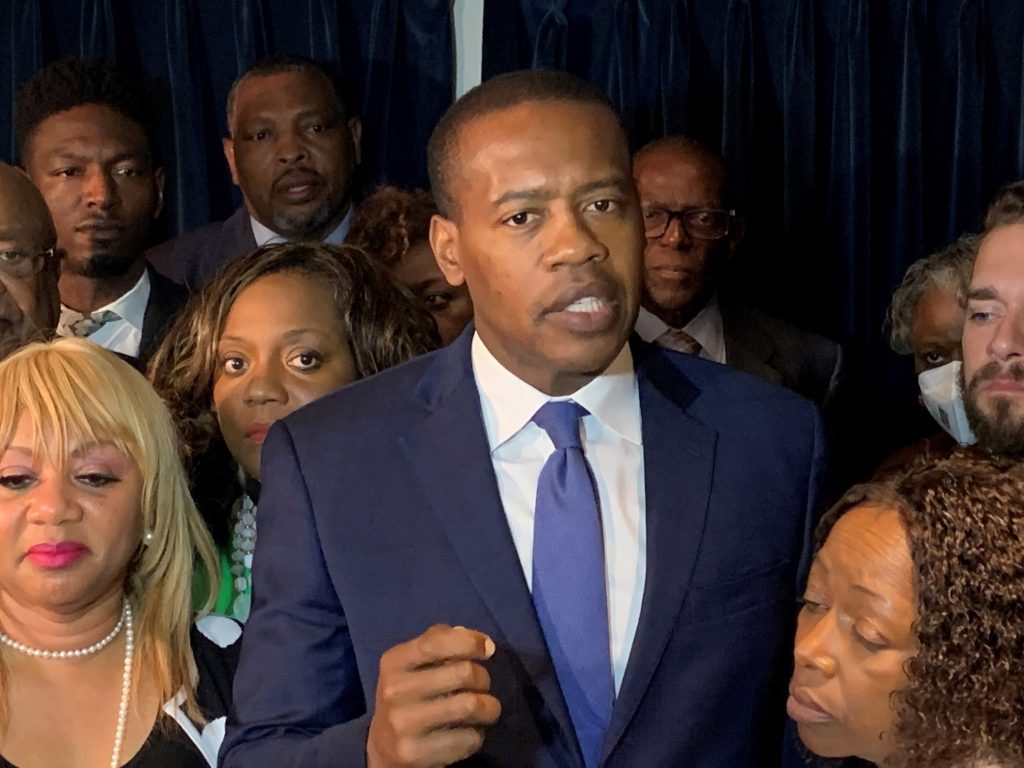The Alabama House of Representatives has passed a bill to broaden the state’s Don’t Say Gay law and prohibit Pride flags in classrooms.
Alabama public school teachers are already not allowed to discuss LGBTQ+ identities up to fifth grade. The new law would extend this ban through 12th grade. H.B. 130The new law would also remove a provision from existing law saying that teachers cannot talk about LGBTQ+ identities in a way that is not suitable for the age or development level of students according to state standards. This means discussions would be completely banned.
A modification to the bill adds that no teacher or other public K-12 employee can display a flag or symbol related to sexual orientation or gender identity in a classroom or on school property.
State Rep. Anthony Daniels (D), the House minority leader, compared the bill to “bullying.”
He said, “We’re bullying a certain class or group of people because they don’t have the representation to fight back.''
The bill was approved by the House Education Policy Committee and will now move to the House floor for a vote. The bill’s sponsor, state Rep. Mack Butler (R), also tried to add an amendment – which failed – specifically stating that the state’s Space Camp may not teach children about LGBTQ+ issues, a reaction to the revelation that a single employee of the Huntsville Space Camp is transgender, which angered a slew of parents and politicians who have called for the employee to be fired..
Republican Committee Chair Terri Collins said, “I have some concerns about calling out one institution when we have camps and things all over.”
Democratic state Rep. Barbara Drummond questioned, “Where does it stop? Do we just patchwork and keep doing it over and over again – and I’m using your word from the last public hearing – until you purify the state of Alabama?” Butler responded that the bill would “send the message that it’s inappropriate for the instructors, the teachers, to teach sexual orientation and gender identity.” The Alabama director of the Human Rights Campaign, Carmarion D. Anderson-Harvey, said the bill “does nothing but stigmatize LGBTQ+ existence in an attempt to roll back the clock on the progress we’ve made in equality.” “Every student deserves a classroom inclusive of all identities where they are valued and safe,” Anderson-Harvey said, “while teachers should have the right to do their jobs without apprehension.” Alabama’s Don’t Say Gay law is among several copycat laws across the country of Florida’s Parental Rights in Education Act.
Signed into law by Florida Gov. Ron DeSantis (R) in 2022, the Don’t Say Gay law initially banned classroom instruction on sexuality and gender identity in grades Kindergarten through three but was expanded last year to ban instruction on those topics in all grades. Opponents of the law have argued its vague language has led to a chilling effect, curtailing any mention of LGBTQ+ people in Florida schools, forcing teachers back into the closet at work, and making it impossible for LGBTQ+ students to seek support or express their identities. AL.com.
At the beginning of this month, Florida
came to an agreement
with a group of LGBTQ+ rights organizations that were contesting the law. The agreement keeps the law in place but makes its wording clearer and invalidates the most harmful parts.
The agreement, made on Monday, specifies that the law only affects the classroom
and does not forbid teachers or students from identifying as LGBTQ+ or mentioning their same-sex partners or family members in the classroom. It also doesn't ban discussions about LGBTQ+ individuals and topics in lessons or student work. It also doesn't relate to library books.
The person who introduced the bill wants to “send a message” that LGBTQ+ matters are not appropriate. Ron DeSantis (R) in 2022, the Don’t Say Gay law initially banned classroom instruction on sexuality and gender identity in grades Kindergarten through three but was expanded last year to ban instruction on those topics in all grades. Opponents of the law have argued its vague language has led to a chilling effect, curtailing any mention of LGBTQ+ people in Florida schools, forcing teachers back into the closet at work, and making it impossible for LGBTQ+ students to seek support or express their identities.
Earlier this month, Florida reached a settlement with a cohort of LGBTQ+ rights groups challenging the law. The settlement leaves the law in place but clarifies its language and nullifies the most dangerous parts.
The settlement, reached on Monday, clarifies that the law only applies to classroom instruction and does not ban teachers or students from identifying as LGBTQ+ or mentioning their same-sex partners or family members in the classroom. Nor does it ban discussion of LGBTQ+ people and issues in lessons or student work. It also does not apply to library books.









